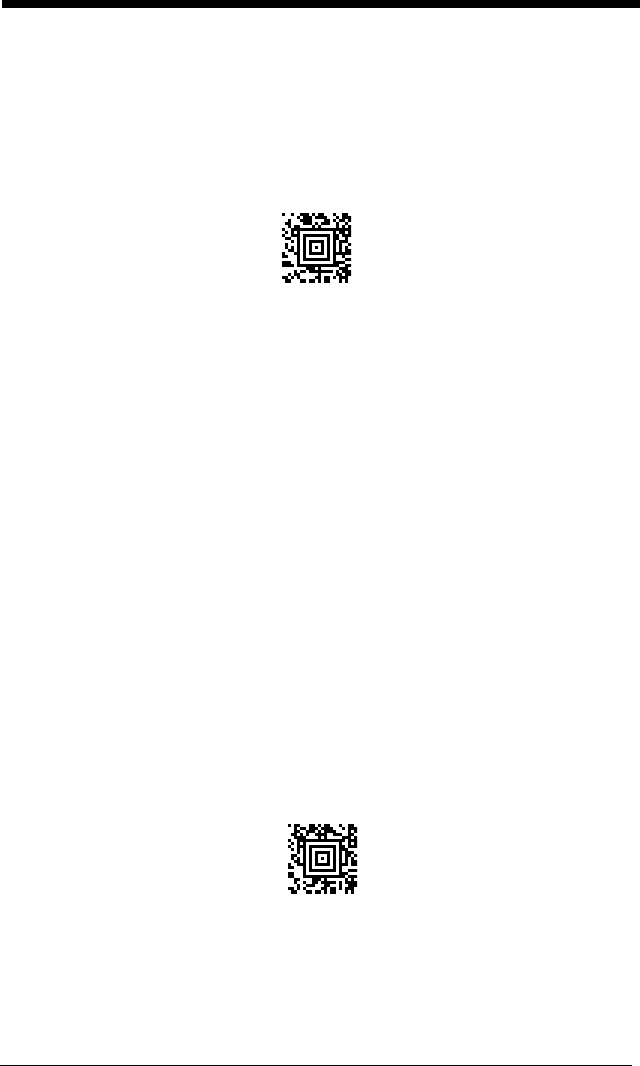
9 - 10
3-1-3-1 Weighted Modulo 10 Check Character
Starting with the check character and working backward through the message,
the imager applies a multiplier of 1, then 3, then 1, then 3, and so on. This is
the checking scheme used in many GS1 symbologies, including U.P.C. and
Interleaved 2 of 5 (when a check digit is invoked). To apply this weighting
scheme, set the OCR check character to “0123456789x3x1” or scan the fol-
lowing symbol:
Example: Scan the 3-1-3-1 Weighted Modulo 10 Check Character symbol. Also
enter the OCR template:
dddddddc
Then scan the string below:
01234565
The reader performs the check character computation below:
(0 x 3 + 1 x 1 + 2 x 3 + 3 x 1 + 4 x 3 + 5 x 1 + 6 x 3 + 5 x 1) modulo 10 = 0
Since the result is zero, the message is considered to be valid, so the reader
outputs the message: 0123456
2-1-2-1 Weighted Modulo 10 Check Character
Starting with the check character and working backward through the message,
the imager applies a multiplier of 1, then 2, then 1, then 2, and so on. When the
result of the multiplication is greater than 9, add both digits to the running sum.
This is often referred to as the LUHN formula. One common application of the
LUHN formula is validate credit card numbers. This is the modulo 10 checking
scheme used in MSI Code and in Code 32 Pharmaceutical (PARAF). To apply
this weighting scheme, set the OCR check character to "0123456789x2x1" or
scan the following symbol:
Example: Scan the 2-1-2-1 Weighted Modulo 10 Check Character symbol. Also
enter the OCR template:
ddddddc
3-1-3-1 Weighted Modulo 10
Check Character
2-1-2-1 Weighted Modulo 10
Check Character


















